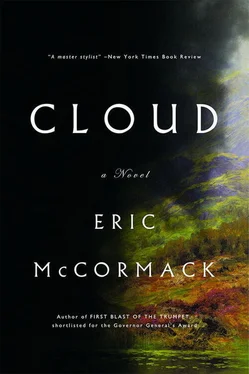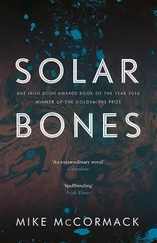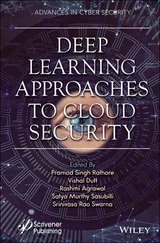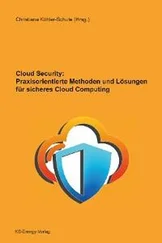A small table by a window looking out onto the wet street was vacant, so I sat there and ate a filling meal of fish and chips with a pint of strong dark beer. As I looked out the window, I couldn’t help marvelling at how much the city had changed. Yet the changes saddened me, too, for some reason. In the case of the Tollgate, it was hard to accept the fact that the bombed-out ruins from that far-off day of horror were now gone. Without them as a marker, the very existence of my parents was made to seem doubly transient and forgettable. I had to console myself with the knowledge that they still lived on vividly in my mind— the only memorial they both would have valued.
I then turned my thoughts to my meeting the next morning with the curator, as well as my return journey to Duncairn. The prospect of these things should have been exciting, but I hadn’t slept on the plane and was starting to feel very tired. By the time I’d got halfway through a second glass of that excellent beer, I couldn’t stop yawning. So I paid for my meal, plodded up to my room, and went to bed, even though it wasn’t long after nine o’clock. The rain drumming against the window mixed with faint sounds from the restaurant beneath lulled my senses.
DUPONT SHOWED ME into a cell where the volunteer, a pale man, lay quite still on his cot observed by keepers in labcoats. When this man held a fossil up to his forehead and closed his eyes, he’d be transported back millions of years. One of the keepers gave him an old rock and he began to describe strange plants and trees. Then he became aware of a huge animal approaching and he shrank back in the cot, screaming, the veins in his brow pulsing. The keeper prised the rock out of his sweating hand, for fear he’d die of shock. The man’s eyes suddenly opened and he stared up at me just as the iron door of the cell behind me slammed shut.
THOSE ACCUSING EYES and that slamming door startled me out of my dream. It took me a few moments to remember I was in the Strath Hotel. Perhaps the door next to mine in the corridor had really banged shut. Certainly, through the wall I could hear the laughter of a man and woman. The bedside clock indicated it was three in the morning.
I tried to put the foolish dream out of my mind and concentrated on getting back to sleep, for the day ahead would be a busy one. Sleep, however, refused to oblige. I started thinking about the Tollgate and reliving that other day, so many years ago, when my parents had been blown to pieces.
Only when I began to hear early-morning traffic in the streets outside the hotel did my grief-stricken and exhausted brain at last close down and I slept.
The rain had stopped overnight and there were even brief glimpses of a winter sun as I walked to the National Cultural Centre, about a mile from the hotel.
I arrived at the centre five minutes before my eleven o’clock appointment. It was a newish, boxy structure, but for one noteworthy feature: its east wing was actually a round clock tower, the remnant of a much older stone building.
Inside, I asked for the rare books curator and was directed to that old tower. There, I had to climb a flight of stairs that led directly to a large, circular room with walls of smooth stone and a polished wood floor. Several round windows had been cut in the stone, giving the effect of a ship’s portholes. Lamps dangled from the high plank ceiling. Dozens of grey metal filing cabinets fanned out from the middle of the room like an oversized set of dominoes. Beside them was an array of solid-looking tables and wooden chairs. But I couldn’t see any collection of rare books.
A SHORT, BALDING man whom I hadn’t noticed, for he’d been behind one of the rows of filing cabinets, came towards me with hand outstretched.
“Mr. Steen?” He had that familiar loud voice. “A pleasure to meet you. I’m Neale Soulis, the curator. We’ve talked on the phone.”
He wasn’t at all the elegant scholarly type I’d envisaged. He was fiftyish with a bulbous nose and wire-rimmed glasses. His blue suit was wrinkled, the knot of his tie askew: he was clearly a man uninterested in fashion.
We shook hands.
He had just begun to say more when a most alarming thing happened: the solid stone walls and the floor began to tremble so much I was afraid the tower was about to collapse. Then an ear-splitting noise came from above us: the bell of the clock was slowly chiming the hour of eleven. Soulis waited till the chiming ceased before he spoke again. At least, his lips were moving, but I’d such an after-echo in my ears I could barely make out what he was saying. He waited a moment more then spoke again, or shouted:
“Can you hear me now? I’m afraid you arrived just a bit too early. I should have warned you against that. Can you believe that clock used to go off every quarter of an hour before I got them to adjust it? Now at least it only chimes on the hour.” The reverberations had ceased but he was still talking very loudly. “This tower used to be part of the official residence of the Lord Provost of the City till it was bombed in the last war. The bell was cast in Hungary back in 1850. Did you know the Hungarians used to be the great bell makers of Europe?”
I backed away from him just a little. Perhaps the constant ringing of the bell over time had damaged his ears, for he had the loud voice of someone hard of hearing.
I looked around. If this was the Rare Book Room, where was the collection? All I could see were filing cabinets and study tables.
“Ah, we don’t keep the actual books here — they’re in Special Collections at the university, a few miles away,” he said. “If you’re around tomorrow, I’ll take you there and you can have a look at our collection. It’s extremely interesting.”
I told him that wouldn’t be possible, since later that day I intended to drive through the hills to Duncairn — strictly for nostalgic reasons. I might stay in the Uplands for a day or two, then I’d have to return to Canada and get back to work.
“I understand perfectly why you’d like to visit Duncairn again,” he said. “Well, perhaps on your next visit you’ll have more time. You see, this location is just a research facility. No other department was keen on using it because of the noise, so I volunteered for the sake of getting the extra space for our files. As you can tell, it’s not ideal, but it serves as a useful office for me, too. Visitors who come to see me are usually scheduled for a few minutes after the hour. I warn them to leave a few minutes before the next hour strikes. One advantage is, it helps keep meetings to the point.”
I couldn’t tell whether that was meant to be amusing.
“So, don’t worry. I’ll make sure I get you out at five to noon,”
he said. His voice was becoming more bearable now.
HE LED ME OVER to a cluttered desk half hidden amongst the filing cabinets.
“This is what passes for my private office,” he said apologetically. He sat behind the desk and I sat in front. I could see, lying beside a sheaf of papers, my copy of The Obsidian Cloud . He caressed it with his fingers from time to time throughout our entire interview.
“I’m very glad you were able to come and see me,” he said. “As I communicated to you, I consider this book a fascinating find. Isn’t it incredible that you actually lived in Duncairn when you were a young man — and then to discover this book in the middle of Mexico? And, as you said, but for the name ‘Duncairn’ on it, you probably wouldn’t have taken any interest in it. Believe me, the really exciting discoveries in our business are often made in just that fortuitous way — as though some god of books was at work.” His smile displayed rows of uneven and yellowish teeth. “There’s probably nothing to the entire Mexican connection, but we’ll check it out thoroughly. Perhaps some identifiable traveller brought it to Mexico, or some book collector acquired it long ago. In the trade, we call that part a book’s ‘provenance.’”
Читать дальше











